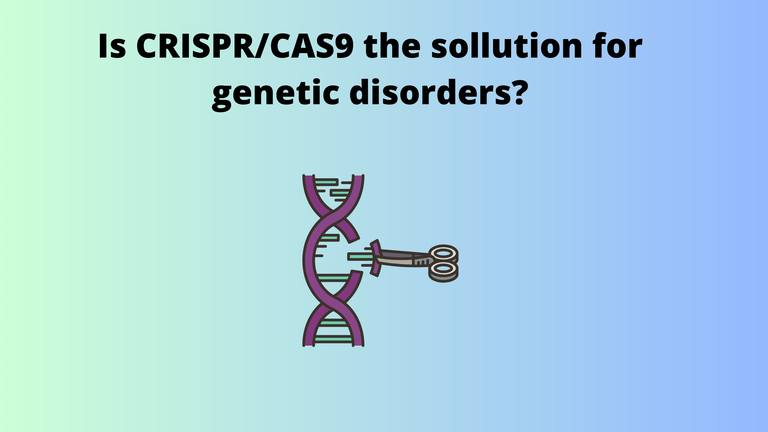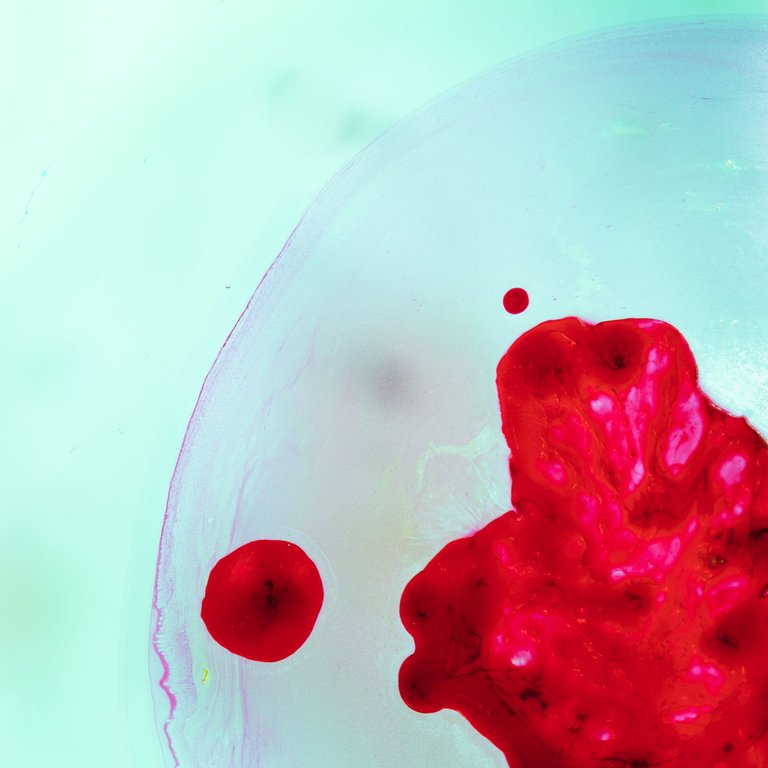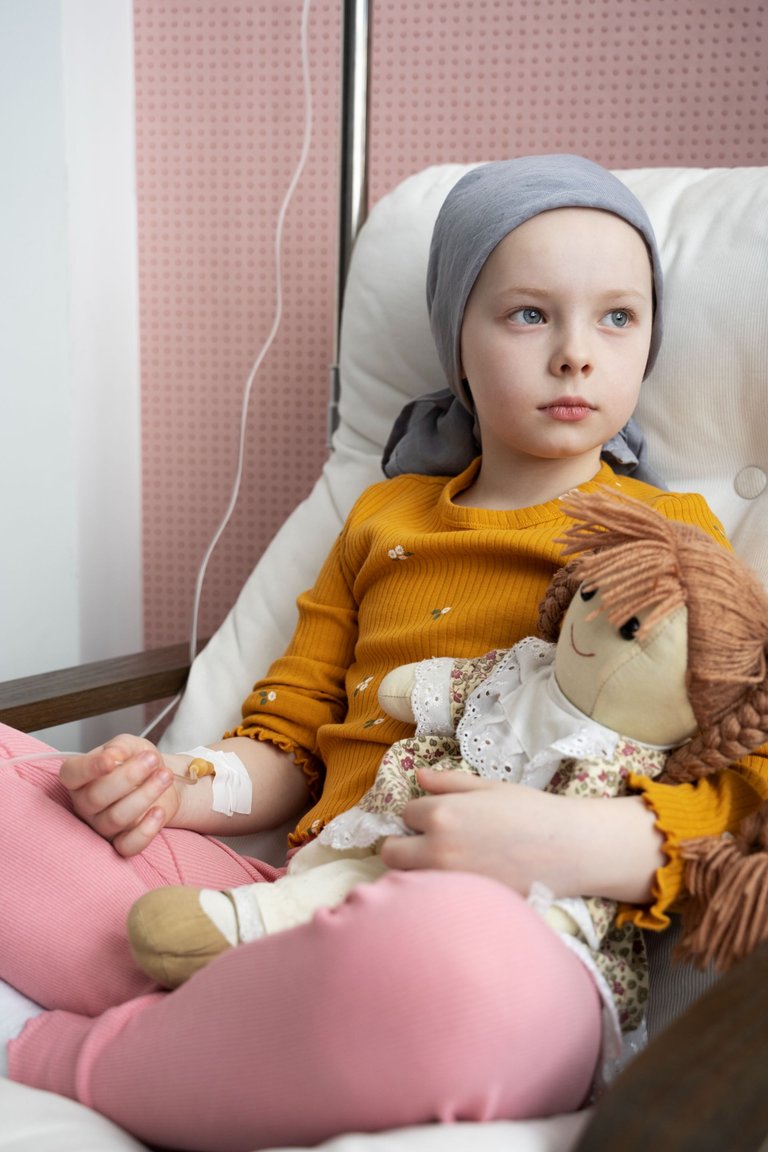Is CRISPR/CAS9 the sollution for genetic disorders?

After a @davideownzall comment, I saw that he posted about excellent news that a paper was published showing improvements of a baby with a rare genetic condition after a CRISPR/Cas9 treatment. I also read that at the same time @stayoutoftherz published about the same news. In this other post, he goes a bit more into the way that I agree more. But still, I think that I can add something about this topic.

In the institute where I worked between 2017 and 2022, one of the projects was about using this technique to edit genes in cultured cell lines from lung cancer. We had some challenges, the main ones were both. First: working with cultured cancer cell lines usually hardly represents the reality of a real lung tumor. Those cells were usually isolated a long time ago and lost their original genetic profile after so much replication. You will find so many mutations that aren't normal to find in a fresh tumor sample. The second challenge was concerning the technique. The random gene edition of the technique wasn't replicated in every experiment. We could knock out targeted genes, but at the same time, other genes were also being edited. In the end, the project spent so much money without any interesting and consistent findings.
Now, a finding that brings hopes for treatments of rare diseases that can be a sentence of death. In this case, a patient with carbamoyl phosphate synthetase 1 (CPS1) deficiency had its mutation "fixed" by the technique, actually a modified version of the technique, which instead of double edge cutting of the DNA strand, it chemically alters one nucleotide that is responsible for the mutation that confers the disease. So it is a more controlled version of the CRISPR/CAS9 traditional technique. The patient is doing good, but how does this finding apply to our current hopes in the technique for other genetic diseases?
For sure, it is promising for single-nucleotide-associated genetic diseases, such as Beta-thalassemia, Cystic Fibrosis, and even some cases of Sickle Cell Disease. On the other hand, there is the problem that @stayoutofherz brought: The costs. Maybe some people have heard about CAR T-cell therapy for diseases like cancer. It is totally different fundamentals, just to be clear, but it demands a huge infrastructure to perform, which includes dedicated personnel for each single treatment and precise lab equipment to perform it, which is costly. Mass production of a chemical or biological product will always be better in these terms. So I totally understand his point of view on that. So for sure, this technique will be available in the hands of a few, like CAR-T cell therapy is right now.

The news brought us some hope for specific diseases, but I still can't see this technique being used for diseases that are associated with multiple mutations, such as cancer and autoimmune diseases. But who knows? I thought that CRISPR/CAS9 would be abandoned in the near future, like many other gene editing efforts for therapy in the past, such as the use of endonucleases and RNA-based silencing. The conclusion is that the treatment had a success; it is a pioneer in the area, by the way. However, there I can't see a bright future and a big role as a solution in the whole world of treatments for genetic disorders.



Após um comentário de @davideownzall, vi que ele publicou sobre excelentes notícias de que um artigo foi publicado mostrando melhorias em um bebê com uma condição genética rara após um tratamento com CRISPR/Cas9. Também li que, na mesma época, @stayoutoftherz publicou sobre a mesma notícia. Nesta outra publicação, ele se aprofunda um pouco mais no que eu concordo mais. Mas, ainda assim, acho que posso acrescentar algo sobre este tópico.

No instituto onde trabalhei entre 2017 e 2022, um dos projetos era sobre o uso dessa técnica para editar genes em linhagens celulares cultivadas de câncer de pulmão. Tivemos alguns desafios, e os principais foram ambos. Primeiro: trabalhar com linhagens celulares cultivadas de câncer geralmente dificilmente representa a realidade de um tumor de pulmão real. Essas células geralmente foram isoladas há muito tempo e perderam seu perfil genético original após muita replicação. Você encontrará muitas mutações que não são normais em uma amostra de tumor fresco. O segundo desafio foi em relação à técnica. A edição genética aleatória da técnica não foi replicada em todos os experimentos. Conseguimos eliminar genes-alvo, mas, ao mesmo tempo, outros genes também estavam sendo editados. No final, o projeto gastou muito dinheiro sem nenhuma descoberta interessante e consistente.
Agora, uma descoberta que traz esperanças para tratamentos de doenças raras que podem ser uma sentença de morte. Neste caso, um paciente com deficiência de carbamoil fosfato sintetase 1 (CPS1) teve sua mutação "corrigida" pela técnica, na verdade, uma versão modificada da técnica, que, em vez de cortar a fita de DNA com dois gumes, altera quimicamente um nucleotídeo responsável pela mutação que confere a doença. Portanto, é uma versão mais controlada da técnica tradicional CRISPR/CAS9. O paciente está bem, mas como essa descoberta se aplica às nossas esperanças atuais na técnica para outras doenças genéticas?
Certamente, é promissor para doenças genéticas associadas a nucleotídeos únicos, como talassemia beta, fibrose cística e até mesmo alguns casos de anemia falciforme. Por outro lado, há o problema que @stayoutofherz trouxe: os custos. Talvez algumas pessoas já tenham ouvido falar sobre a terapia com células T CAR para doenças como o câncer. São fundamentos totalmente diferentes, só para esclarecer, mas exigem uma infraestrutura enorme para serem realizados, o que inclui pessoal dedicado para cada tratamento e equipamentos laboratoriais precisos para realizá-los, o que é caro. A produção em massa de um produto químico ou biológico sempre será melhor nesses termos. Então, eu entendo perfeitamente o ponto de vista dele sobre isso. Então, com certeza, essa técnica estará disponível para poucos, como a terapia com células CAR-T está agora.

A notícia nos trouxe alguma esperança para doenças específicas, mas ainda não consigo imaginar essa técnica sendo usada para doenças associadas a múltiplas mutações, como câncer e doenças autoimunes. Mas quem sabe? Eu pensava que o CRISPR/CAS9 seria abandonado em um futuro próximo, como muitos outros esforços de edição genética para terapia no passado, como o uso de endonucleases e silenciamento baseado em RNA. A conclusão é que o tratamento foi um sucesso; é pioneiro na área, aliás. No entanto, não consigo ver um futuro brilhante e um grande papel como solução em todo o mundo dos tratamentos para doenças genéticas.

Obrigado por promover a comunidade Hive-BR em suas postagens.
Vamos seguir fortalecendo a Hive
Bzzz! Espero que essa notícia sobre o uso do CRISPR/CAS9 para tratar doenças genéticas raras seja apenas o início de um futuro promissor em medicina! Parabéns ao time de cientistas por esse avanço!
#hivebr
AI generated content
Commands: !pixbee stop | !pixbee start | !pixbee price
Sending Love and Ecency Curation Vote!
 Please Vote for our New Proposal! 🙏
Please Vote for our New Proposal! 🙏
You know how will end? It will be a fix for children sick from rich parents, like everything else in health... You pay, you skip queue, you pay, you get better and new treatments... Or for parenting, a couple of poor homosexuals will never get a child, rich ones will... Endless list
That's why the debate between private and public health is always very difficult. I agree that without private investment, science slows a bit. But health access should be universal. Right now I don't know how to change that into an optimal way where you see science advances at the same time providing access to healthcare to everyone.
Yeah, like water, should be public for all... But money God wins always
I couldn't find for this post by the way... there was a social media campaign for a Brazilian girl with a rare genetic disease girl. The disease doesn't have a treatment but they could access a clinical trial of something for 4 million USD lol so they were gathering this money for that...it is a lot of money!
Lol madness, not enough even sell a kidney